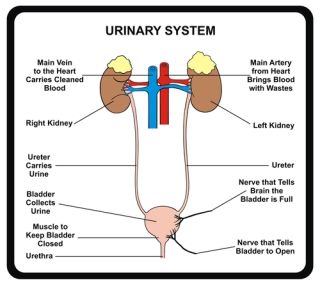Contents
Symptoms of urinary disorders
The prostate tends to get bigger with age when a man is over the age of 50. This increase in size results in urinary disorders which are sometimes very annoying. So, what are these urinary disorders that should lead to a consultation for treatment?
The dysuria
Normally urinating is easy, you just have to let your bladder relax and the urine will flow out easily and quickly. With dysuria, urine doesn’t come out so easily. The act of urinating (urination) becomes dysfunctional, hence the name dysuria.
It may take a long time for urine to start to come out (delayed onset), then it has difficulty coming out, the stream is weak, and the person with dysuria has to push to help the fluid flow out. Having to push early is a sign that urination is not working well.
On the other hand, the urine stream may stop at times before starting again. Suddenly, the act of urinating lasts 2 to 3 times longer in case of dysuria than if everything is going normally and this act can be carried out in several times, with stops.
This dysuria is due to the too large prostate which crushes the urethra (pipe which evacuates urine). Experiment if you are a gardener: if you pinch the hose to water your plants, the water has trouble coming out …
Reduced jet force
When the urinary tract is functioning perfectly, the urine stream is powerful. With prostate adenoma (or benign prostatic hypertrophy), the urine stream becomes significantly weaker. Indeed, because of the prostate which obstructs the flow of urine by pressing on the walls of the urethra, the jet is reduced.
This sign may not be noticed at first, because the prostate grows very gradually, the decrease in force of the jet occurs gradually. It is often more marked in the morning than during the day or evening.
When a man notices this sign, it is advisable to consult a doctor. Indeed, the reduction in the spray could also be linked to other concerns of the urinary tract. Men often think that the decrease in strength of the urine stream is related to age, but this is not the case.
Urgent urination
Urgent urination is also called urgency or urge to urinate. It is the sudden onset of an irresistible urge to urinate. The person who experiences this feels pressured to urinate right away. This need to urinate is difficult to control.
This urgency can lead to involuntary urine loss if the person is in a place where they cannot urinate quickly and they do not have time to get to the toilet.
This feeling of urgency is due to an automatic contraction of the bladder.
Pollakiuria
Pollakiuria is the too frequent emission of urine. It is estimated that a person who urinates more than 7 times a day has pollkiuria. In the case of prostate adenoma, these are only emitted small amounts of urine.
This symptom is the most frequently reported sign of benign prostatic hyperplasia.
Often the affected man cannot go more than 2 hours without going to urinate.
This sign therefore causes significant social difficulties: going for a walk, shopping, attending a concert, a conference, meeting with friends becomes more difficult, because you have to think about providing a place to relieve the bladder!
Delayed drops
After you have finished urinating, delayed drops may come out, and this is sometimes a major social embarrassment for the man who observes it. Because these drops can stain clothes and be visible to those around you …
These delayed drops are linked to the weakness of the jet: the urine is not expelled with sufficient force and when the man has finished urinating, a certain amount of urine stagnates in the urethra and it flows out. afterwards.
Nocturia or nocturia
Needing to urinate more than 3 times each night is a sign of prostate adenoma. This causes significant discomfort. First for the man who is affected, because it can result in sleep disorders: difficulty falling back to sleep, choppy sleep, fear of not being able to get a restful night, fatigue during the day. And then, it can also represent an embarrassment for his partner who can be awakened by the nocturnal awakenings.
Having to get up more than 3 times a night to urinate could even lead to increased mortality, perhaps from the chronic fatigue it can induce.
Be careful, some men may need to get up often at night because they take a large amount of drink in the evening, in which case the prostate is not necessarily involved!
The feeling of incomplete urination
After urinating, a man with benign prostatic hypertrophy (BPH) may feel that he has not completely emptied his bladder. He feels a feeling of heaviness in his small pelvis, as if his bladder still contains urine.
On the other hand, he may want to go back to urinating just a few minutes after urinating for the first time. And then, with the delaying drops being able to escape, he feels that he cannot completely empty his bladder.










